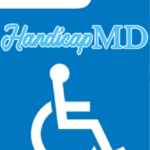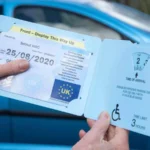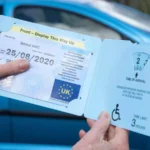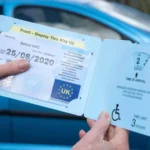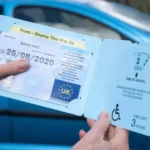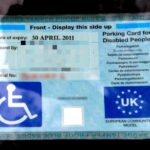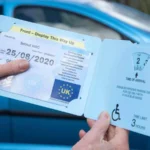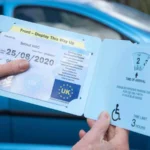Welcome to our comprehensive guide on the Blue Badge scheme. Whether you’re looking to apply for a badge, renew an existing one, or simply learn more about how it works, you’ve come to the right place. Explore our resources to ensure you have all the information you need to make the most of your Blue Badge.
Your Complete Guide to the Blue Badge
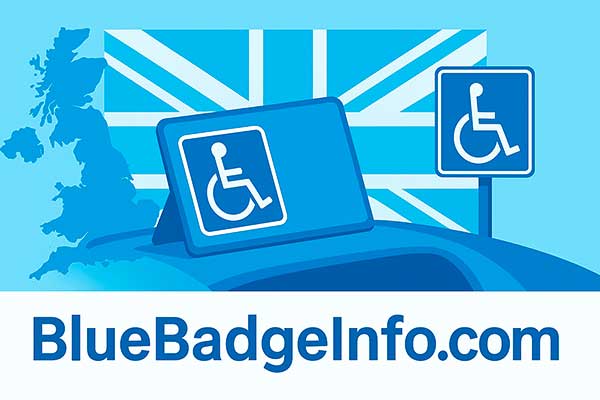
Find everything you need to know about Blue Badge eligibility, application, and regulations in the UK.
About the Blue Badge
The Blue Badge scheme provides essential parking privileges for people with disabilities, allowing easier access to public services and facilities. Designed to support those with significant mobility issues, the badge offers benefits like parking closer to destinations and using designated spaces across the UK and Europe.
Why the Blue Badge Scheme Matters
The Blue Badge scheme is a vital initiative that significantly improves the quality of life for individuals with mobility impairments. It allows them to carry out daily activities more easily, ensuring greater independence and accessibility to essential services. Without this scheme, many people with disabilities would face serious obstacles in reaching work, medical appointments, shopping centers, or social events.
One of the most critical aspects of the scheme is that it helps promote equal opportunities for individuals with disabilities. By providing designated parking spaces close to key locations, the Blue Badge allows badge holders to participate more fully in society without unnecessary stress or hardship. For many people, the ability to park near their destination is not just a convenience—it is a necessity.
Additionally, the scheme plays a fundamental role in reducing physical strain and fatigue. Individuals with disabilities or severe health conditions may find walking long distances physically exhausting or even impossible. By allowing them to park closer to essential facilities, the Blue Badge scheme directly supports their health and well-being.
The Blue Badge also benefits caregivers and family members who assist people with disabilities. It ensures that those who provide mobility support can park in designated spaces, making their role as caregivers more manageable. This is particularly important for those who need to transport individuals with conditions such as severe arthritis, respiratory issues, or neurological disorders.
Beyond the UK, the Blue Badge is also recognized in many European countries, allowing badge holders to travel with greater ease and maintain accessibility abroad. While regulations may vary slightly from country to country, the scheme provides an essential level of support for international mobility.
Ultimately, the Blue Badge scheme is about more than just parking—it is about dignity, independence, and inclusion. It ensures that individuals with disabilities are not disadvantaged when it comes to accessing daily necessities, employment, education, and social life.
- Improved accessibility – Allows people with disabilities to park closer to essential services.
- Promotes independence – Reduces reliance on others for transportation.
- Enhances quality of life – Reduces physical strain and enables social participation.
- Recognized internationally – Provides mobility benefits in multiple countries.
Who Can Apply for a Blue Badge?
The Blue Badge scheme is designed to assist individuals who experience significant mobility challenges, whether due to physical impairments, hidden disabilities, or chronic medical conditions. The eligibility criteria vary slightly depending on location and personal circumstances, but in general, the following groups may qualify for a Blue Badge:
Individuals with Physical Disabilities
People with severe mobility impairments, including those who:
- Have difficulty walking short distances without experiencing pain or fatigue.
- Rely on walking aids such as crutches, canes, or prosthetic limbs.
- Use a wheelchair or mobility scooter.
- Have conditions such as arthritis, multiple sclerosis, or paralysis that impact mobility.
Individuals with Hidden Disabilities
Not all disabilities are visible. Hidden disabilities that may qualify include:
- Autism spectrum disorders, where unfamiliar or busy environments can cause distress.
- Severe mental health conditions affecting the ability to navigate public spaces.
- Chronic anxiety disorders that limit a person’s ability to travel independently.
- Conditions such as dementia or Alzheimer’s that impact cognitive function.
People with Severe Medical Conditions
Some serious health conditions can severely limit a person’s ability to walk or move comfortably. These include:
- Severe heart and lung conditions that cause breathlessness and fatigue.
- Neurological disorders such as Parkinson’s disease or motor neuron disease.
- Chronic pain conditions, such as fibromyalgia, that make walking long distances unbearable.
- Individuals undergoing cancer treatment who experience significant weakness or fatigue.
Children with Mobility Challenges
Children under the age of three may also be eligible for a Blue Badge if they have a condition that requires:
- Frequent access to medical equipment.
- Continuous supervision due to unpredictable health risks.
- Difficulty walking long distances due to congenital conditions or developmental delays.
Temporary Disabilities
In some cases, individuals with temporary but severe mobility impairments may qualify for a **temporary Blue Badge**. This can include:
- People recovering from surgery that limits their ability to walk.
- Individuals undergoing rehabilitation for serious injuries.
- Patients receiving treatment for conditions that significantly impact movement.
How to Check Your Eligibility
Each local council or governing body has specific criteria to determine eligibility. If you believe you may qualify, the best course of action is to:
- Check your local government’s website for exact requirements.
- Consult a healthcare professional to obtain medical evidence.
- Apply online or through your local council office.
Check our eligibility guide to see if you qualify.
How to Apply for a Blue Badge
- Check Your Eligibility – Ensure you meet the criteria.
- Gather Required Documents – Such as medical reports and ID.
- Submit an Online Application – Through your local council.
- Attend an Assessment – If required.
- Receive Your Badge – Valid for up to three years.
For full details, visit our application guide.
Blue Badge Rules & Regulations
Understanding the rules and regulations surrounding the Blue Badge scheme is crucial to ensuring its proper use and avoiding penalties. While the badge provides significant parking benefits, there are specific guidelines that must be followed.
Where You Can Park:
- Designated Blue Badge parking bays located near essential services.
- Some pay-and-display zones, often allowing free or extended parking.
- Single or double yellow lines, where parking is allowed for up to three hours, except in locations with loading restrictions.
- Some car parks with spaces dedicated to Blue Badge holders, though charges may still apply.
Where You Cannot Park:
- Spaces reserved for permit holders only, unless otherwise stated.
- Loading bays during restricted hours.
- Bus stops, cycle lanes, and pedestrian crossings.
- Private parking spaces or driveways without the owner’s permission.
Penalties for Misuse
Using a Blue Badge incorrectly can result in serious consequences, including:
- A fine of up to £1,000 if misused.
- Confiscation of the badge if it is found to be used fraudulently.
- Legal action against individuals using a badge belonging to someone else without permission.
It’s essential to follow all regulations and ensure that the badge is only used by the registered holder or when they are traveling in the vehicle.
Renewing Your Blue Badge
Renewing your Blue Badge is a crucial step to ensure you continue to benefit from its parking privileges without interruption. A Blue Badge is typically valid for three years, and it’s important to apply for a renewal well in advance to avoid any gaps in your eligibility.
We recommend starting the renewal process at least six weeks before your badge expires. Delays in renewal can lead to unnecessary inconvenience, particularly if you rely on your badge for essential travel.
Steps to Renew Your Blue Badge:
- Check Your Expiry Date – Be aware of when your badge expires to plan your renewal on time.
- Gather Necessary Documents – This may include proof of identity, address, and medical evidence if your condition has changed.
- Apply Online or Through Your Local Council – Each local council has its own renewal process, so ensure you follow the correct steps.
- Possible Reassessment – If your condition has changed, you might be asked to provide updated medical records.
- Receive Your Renewed Badge – Once approved, you will receive a new badge valid for another three years.
If your application for renewal is rejected, you have the right to appeal the decision or seek further clarification from your local council. Stay informed and avoid last-minute issues by keeping track of your renewal schedule.
Check our renewal guide for step-by-step assistance.
Latest Articles & Updates
Stay informed with expert insights on the Blue Badge scheme.

Can I Use My Blue Badge in New Zealand?
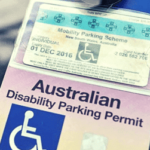
Can I Use My Blue Badge in Australia?
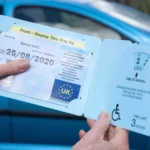
Can I Use My Blue Badge in Finland?

Can I Use My Blue Badge in Austria?
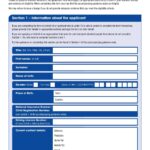
How to Track Your Blue Badge Application Status

Blue Badge Glossary: Key Terms and What They Mean
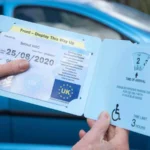
Can I Use My Blue Badge in the Netherlands?
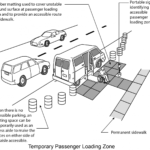
Organising Accessible Group Travel with Blue Badge Parking

Can I Use My Blue Badge in Portugal?
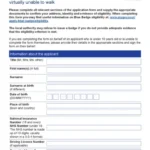
Essential Documents You Need for a Smooth Blue Badge Application
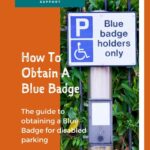
Carpooling and Blue Badge Usage: What Are the Limits?
Disclaimer
BlueBadgeInfo.com is an informational website and is not affiliated with, endorsed by, or officially connected to any government body, local authority, or national agency in the United Kingdom. The information provided on this site is intended to help users understand the Blue Badge scheme and its requirements, but it does not constitute official or legal advice.
For official information regarding the Blue Badge scheme, we recommend visiting the UK Government’s official website or contacting your local council.
We strive to keep the information accurate and up to date; however, we do not guarantee that all details are completely correct or that they will not change without notice. BlueBadgeInfo.com accepts no liability for decisions made based on the information provided on this site.
If you have any questions or concerns about the information presented on this website, please contact us via our contact form.
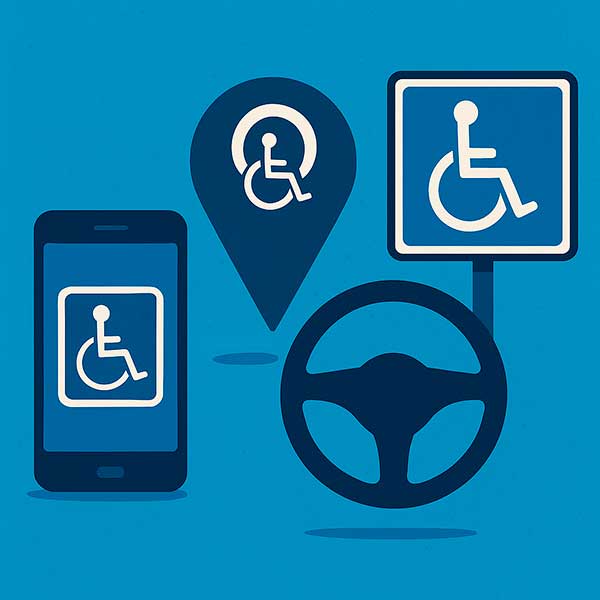
Frequently Asked Questions (FAQs)
Can I use my Blue Badge abroad?
How long does it take to get a Blue Badge?
Can I use someone else’s Blue Badge?
What should I do if my Blue Badge is lost or stolen?
Can I appeal if my Blue Badge application is rejected?
Do Blue Badge holders pay for parking?
Can I use my Blue Badge in a hire or rental car?
Can a Blue Badge be used for a child?
Can I use my Blue Badge in disabled bays at supermarkets?
What happens if I move to a different council area?
Can a Blue Badge holder park in resident permit zones?
Do I need to return my Blue Badge if the holder passes away?
Can I park on double yellow lines with a Blue Badge?
Are there penalties for misusing a Blue Badge?
What should I do if my circumstances change?
Contact Us
Still have questions or need personalised guidance about the Blue Badge scheme? Get in touch through our contact form and we’ll respond as soon as possible.







